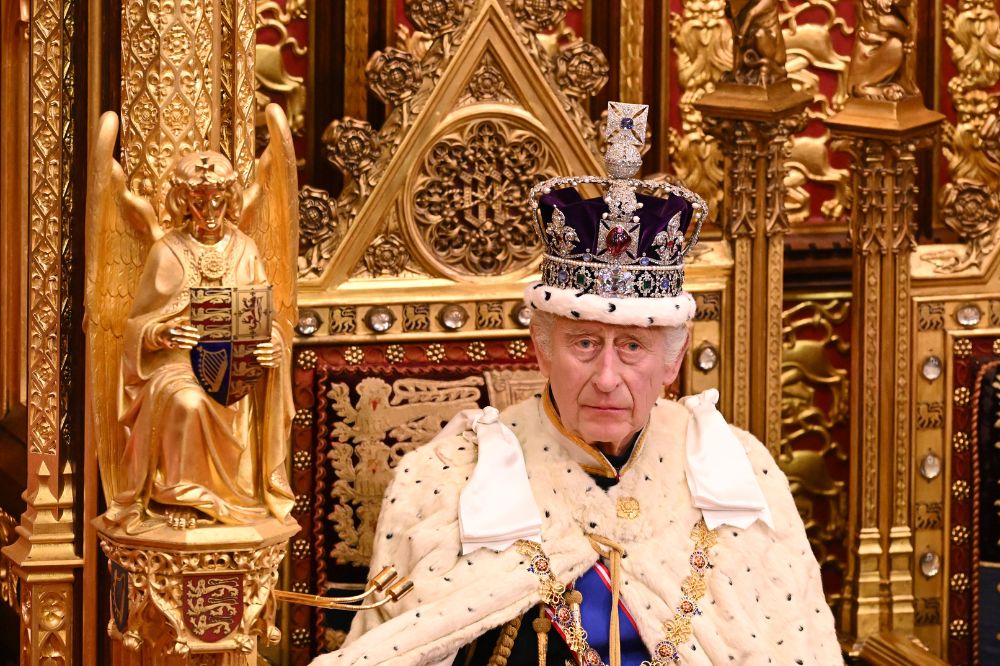Insufficiently other: Equal footing with Scotland should be a minimum demand for Wales

Stephen Price
In spite of Wales’ distinct culture, language and history, I’ve lost count of the times I’ve had to explain to people from other countries, including England, that we’re a different people to the English.
From England acting as the name for these Isles in other languages, to the British flag often being the symbol for the English language, and so on and so forth, Wales and Welsh identity is erased in countless ways.
If we’re lucky, we get to make do with an appearance as ‘England and Wales’, akin to the old days of ‘Wales and Monmouthshire’, but for many, the terms ‘Britain’ and ‘England’ are synonymous, which is very convenient for some.
From the ‘highest mountain in England and Wales’ *groan*, to news and weather reports and meaningless ‘national statistics’ and everything in between, Wales more often than not plays a guest or ‘plus one’ role, while Scotland and Northern Ireland are much more likely to achieve top billing.
It hit me how comfortably we accept lesser than the Scots the other week when receiving a gift of a Scottish ten pound note from a relative who effectively wanted it laundered and the worry of it being scrutinised by a sales assistant taken away (I’m on hand for anyone with similar insecurities).
“Sorry dalen, but what the ‘ell is this?!”
Crown Estate
The issue of disparity between the devolved nations rears its angry head on quite the regular basis, but the question over the fairness of the situation has reached boiling point lately amid growing dissatisfaction with the Crown Estate.
Spurred on by the green energy gold-rush, along with scrutiny over the large swathes of land (and their profits) owned by a colonising power here in Wales, calls are being repeated for Wales to receive the same control over the Crown Estate that Scotland has.

But it’s not just this one area where Wales lacks both the same level of power granted by the land next door.
Even down to the number of public holidays we have, Wales always seems to be last in line.
Devolution
The UK has had devolved governments since the late 1990s, which work alongside the Westminster Parliament.
There are different types of devolution across the UK’s nations and parts of England.
For many years England, Wales, Scotland and Northern Ireland were run by the UK government, based in Westminster in London, but there were growing calls to transfer some of this power to Edinburgh, Cardiff and Belfast.
Public votes about devolution were held in 1997 in Scotland and Wales, and on both sides of the Northern Irish/Irish border in 1998 as part of the Good Friday Agreement.
The UK government in Westminster remains responsible for policies which affect just England, as well as overall policy in a number of areas.
These include defence and national security, foreign policy, immigration, citizenship and tax – although Scotland has its own powers to raise and lower income tax.
Wales
The Senedd’s responsibilities include:
- Agriculture, forestry and fishing
- Education
- Environment
- Health and social care
- Housing
- Local government
- Highways and transport
- Some control over income tax, land transaction tax (known commonly as ‘stamp duty’), and landfill tax
- Welsh language
Scotland
Scotland already had its own legal and education system. After devolution, it has become responsible for many areas, including:
- Agriculture, forestry and fishing
- Education
- Environment
- Health
- Housing
- Justice, policing and courts
- Local government
- Some transport
- Taxes including income tax, stamp duty and air passenger duty
- Some welfare powers
- Crown Estate
Northern Ireland
Devolution in Northern Ireland is different to Scotland and Wales, with government powers divided into three categories:
- Transferred powers are controlled by the Northern Ireland Assembly
- Reserved powers remain with Westminster, but could be transferred in the future, these include prisons and civil defence
- Excepted powers cannot be moved to the Northern Ireland Assembly without special laws being made in Westminster. They include elections and national defence
The main powers of the Northern Ireland Assembly include:
- Agriculture
- Education
- Environment and planning
- Health and social services
- Local government
- Justice, policing and prisons
- Control over air passenger duty
- Transport
- Culture, language and sport
Wexit
Wales only has control over some areas of tax unlike Scotland. And Wales lacks the same power over justice, policing and courts.

Concentrating on Scotland for ease, though, are we less of a different people to the English than our Celtic cousins, despite having greater numbers still speaking our native language?
Is it our smaller population or land mass?
Is it our reputation for being too friendly for our own good?
Or are we just easier to appease at the ballot box with our undying love of a rebranded red rosette?
Various Commissions have recommended the devolution of further powers, such as certain tax powers, policing or the legal jurisdiction, with some but not all of these recommendations having been implemented thus far.
This has led to Wales having fewer areas of responsibility than Scotland and Northern Ireland.
Before the UK blindly walked into the ongoing chaos that is Brexit, many were calling for an ‘off the peg’ status for the UK in line with others that have ‘special relationships’ such as Norway, but knowing what we were actually voting for was far too sensible an option for anyone to explore further.
Similarly, wouldn’t it be easier, more sensible, for everyone if the devolved nations had equal powers? The same number of public holidays?
Raise your flag (higher)
But we shouldn’t let equality with Scotland be our end goal.
The last thing we need are squabbles over the amount of crumbs our natural, historical allies have in comparison with our own.
Our goal should be absolute equality with England, too.
While the offer of independence is yet to be presented or (as I would have it) simply declared, in the words of Mike Hedges MS, “we need a full overhaul of the devolution settlement to Wales, Scotland and Northern Ireland.”

Even when combined, the populations of Wales, Scotland and Northern Ireland are dwarfed by England’s, and Westminster will naturally reflect the will of the majority – and certainly not the will of the people of Wales.
While it still exists, we need a federal Kingdom united by equality – a devolved England, Northern Ireland, Scotland and Wales each having the same powers, no more and no less.
We need to be bolder, and not ask for the profits from Crown Estate lands, but the complete handover of the land itself, and greater openness over who else owns our land at our own expense.
We must demand that St David’s Day becomes a public bank holiday. And if it’s not given, it’s taken.
And we need a nice little mug shot of Llywelyn ap Gruffyd or Owain Glyndwr on our notes.
Or, failing that, Eileen Beasley or Saunders Lewis in full-on rebel mode.
Let’s make it happen!
Support our Nation today
For the price of a cup of coffee a month you can help us create an independent, not-for-profit, national news service for the people of Wales, by the people of Wales.








What you propose is better than the status quo Stephen. However, it would be helpful if you could address some of the traditional counter arguments for a federal UK. Namely England’s weight of numbers. If the three nations + NI each had parity at a sub-state level, we would have to consider then how the federal govt was constituted. England would never agree to having a 25% share of that government. If England has a population share then we’re not much better off than where we are other than we get more powers devolved. There are other issues as well… Read more »
I’ve always thought the “overweight England” argument is spurious. It is a classic example of letting the perfect be the enemy of the good. Yes, England is much bigger than the other countries. Yes that will cause problems at times. But compare it to the status quo, not some imagined ideal, it would still be better than the current, non-federal setup. It’s a significant improvement that doesn’t fix everything, but that still means it’s a significant improvement. I’m not disagreeing with much of what you say, I just think that federalism within the current state is not such a huge… Read more »
The real test of imbalance in a federal UK will be whether Wales can veto England. If that idea elicits laughter you have your answer.
UK federalism will only work properly when England is dissolved and the Heptarchy reinstated.